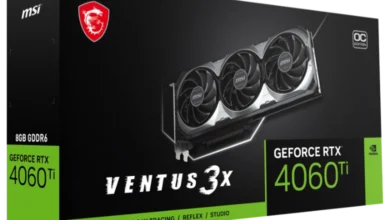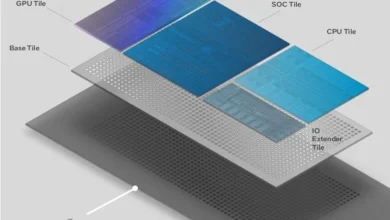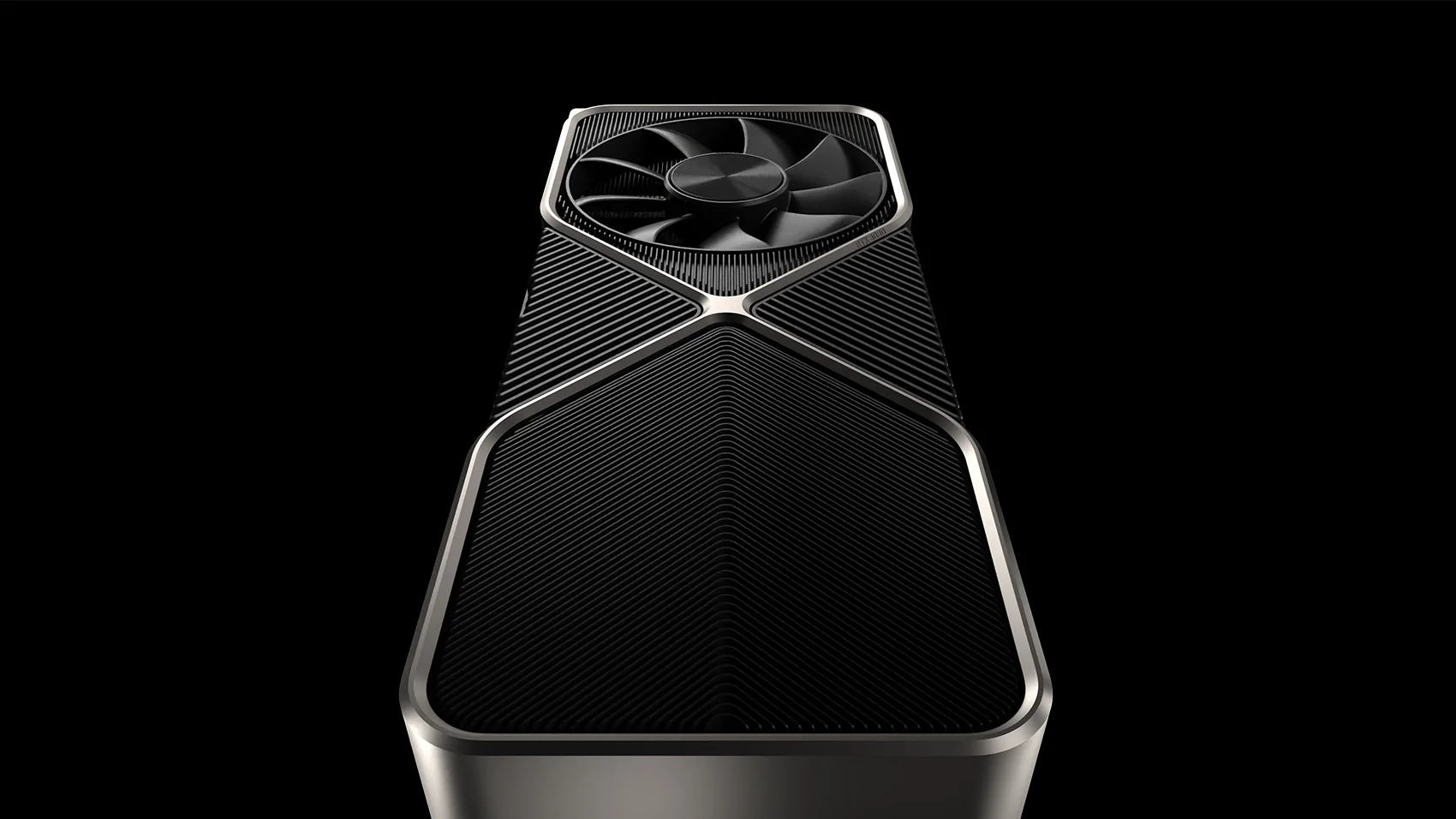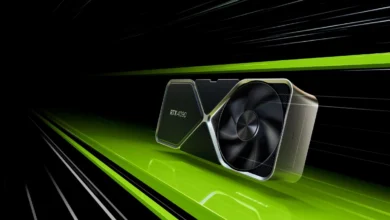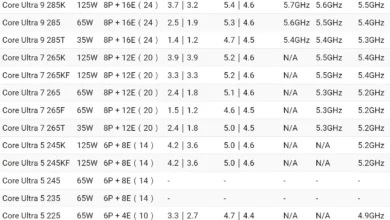New test shows CPU Cache matters more than Cores in Gaming

When comparing 6-core vs 8-core CPU, the test found that there’s hardly any difference between them in gaming in AMD CPUs. Extra cache makes a big difference.
From years, there’s a debate. A debate whether one should buy a higher core CPU for gaming or stick to lesser core ones. Usually, lesser core CPU come with lesser cache, but that’s not always the case.
While we are not necessarily in the quad-core era now, 6-cores and 8-cores are the talk of the town these days.
This is especially a thought of some people because current-gen consoles come with 8-cores and many top-most games out there are first designed for consoles and then ported or modified for PC gaming.
Then on the other side there’s cache. From years, we have known that extra cache has provided a boost in gaming performance.
This was seen when AMD released the Ryzen 5800X3D CPU, which came with an additional 64MB cache on top of a 32MB one. Then AMD followed it up with the likes of Ryzen 7950X3D, 7900X3D and 7800X3D.
So well do these X3D CPUs sell that AMD even released Ryzen 5700X3D and Ryzen 5600X3D CPUs relatively recently.
What’s common between all these X3D CPU. All these processors come with 96MB of L3 cache.
So someone thought, why not give these CPUs a try. To check, what matters more, extra CPU cores or extra cache in gaming.
Extra Cores vs Extra Cache
Steven Walton from the Hardware Unboxed YouTube fame posted an interesting article on TechSpot. The article CPU Cache vs. Cores: AMD Ryzen Edition tests various CPUs with various core and cache counts. The same can also be found on his YouTube video.
In the article, he decided to test six different CPUs in two different sets. Three 8-core CPUs and three 6-core CPUs. However, all CPUs in the single set came with different amount of L3 CPU cache.
Though only Ryzen 5000 series CPUs were compared, right now only they offer complete testable range.
The reviewer however mentioned that the clocks weren’t locked at the same speed. Leading to max 7% clock speed discrepancy. However, he mentioned that it wouldn’t have made much difference.
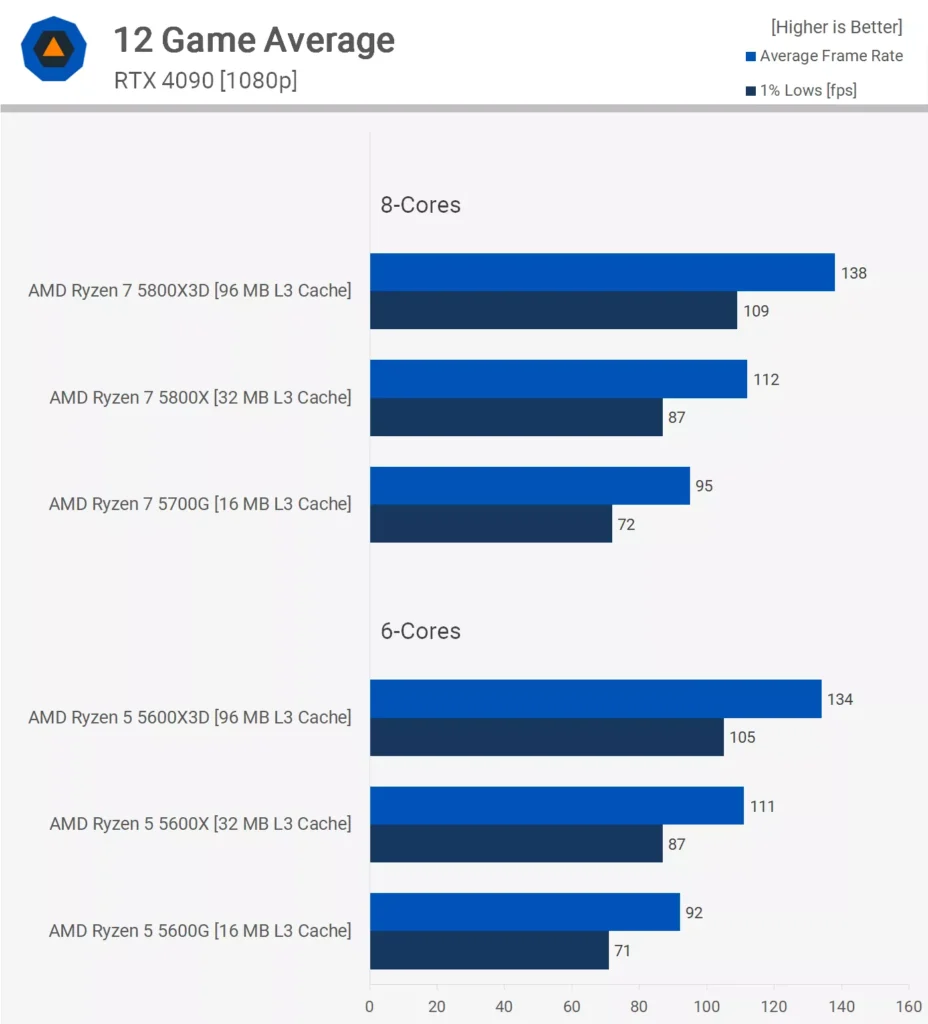
The result of the gaming tests on these CPUs was simple. The difference in gaming performance between 8-cores and 6-cores CPUs was just 3%. However, a far bigger performance increase was seen when higher cache CPUs were used.
There was a massive 18% increase in average gaming performance when the CPU L3 cache was increased from 16MB to 32MB. If that wasn’t enough, going from a 32MB L3 cache to a 96MB L3 CPU cache saw boost of 23%.
In other words, the average difference between a similar 16MB L3 cache CPU and a 96MB L3 cache CPU was a massive 45%. Just think about it, almost the same CPU, however extra 64MB cache gave a boost of 45%.
Conclusion
The above tests give some very important findings. First is, games are still not designed to fully utilize more than 6-cores. This can change in the future, but it’s not the same currently.
Second is, extra cache plays a far more important of a role in gaming. It might not be the same in other software, but in gaming, extra cache matters more than core counts.
Third is, AMD has given the gaming community a great gift through its 3D V-cache based X3D CPUs. It’s a gift that keeps on giving for both AMD and gamers.
We are still waiting for Intel to come up with an answer for it. It’s not that Intel CPUs don’t put up a challenge. They are still very competitive against AMD. Only that, AMD has shown what extra cache can do over just extra core counts.
